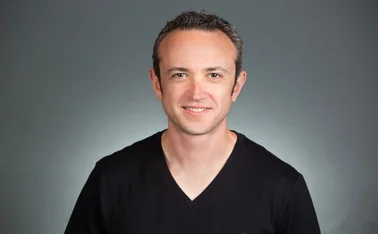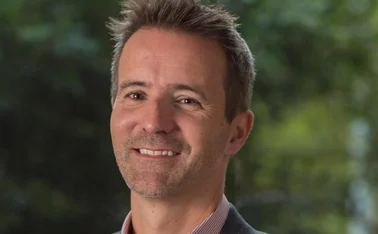
Driverless experts: Autonomy to lead to ‘brutal’ insurer consolidation

Autonomy experts expect the advent of driverless cars to result in massive amounts of consolidation and change in the motor market, with mid-size personal lines players most at risk.
More than $80bn (£62bn) has been invested in driverless technology so far, according to a report published by the Brookings Institute in October 2017.
Uber, Tesla and Google-owner Alphabet are among a slew of companies investing in advanced driver assistance systems and autonomy research, along with a host of traditional motor manufacturers such as Mercedes, BMW and Volkswagen.
Some autonomous vehicles are expected to be in use by 2025, with research groups predicting that the UK’s roads will be fully automated between 2050 and 2070. The first piece of driverless legislation was brought into UK law in July, when the Automated and Electric Vehicles Bill passed through parliament.
Within the next fifteen to twenty years, experts predict that the face of the motor insurance market will undergo massive change to keep up with the technology. Roads are expected to be safer as a result, but according to industry experts it may well to lead to insurer casualties.
‘A tumultuous time’
Thatcham Research director of insurance research Matthew Avery told Post: “This is such a tumultuous time for the auto industry and also for motor insurers. They are very interesting times, but fortunes will be made and lost.”
“We can certainly see insurers working at different speeds. Some that are very proactive, analyzing claims data, seeing trends like a 20% reduction for vehicles fitted with autonomous braking, modifying their book accordingly. Some take a wait and see attitude but are actively monitoring their claims to see the technology effect, whilst others don’t appear to be acknowledging the huge impact technology will have even if it’s just in terms of their third party exposure.”
Going global
Allianz chief claims officer Graham Gibson is the chair of Thatcham. He believes that automotive manufacturers’ global ambitions will lead them to partner with big insurers. Smaller insurers will have a less attractive proposition, he expects.
Gibson told Post: “Vehicle manufacturers are moving towards running their engines on an international scale. They therefore want to partner with someone who can offer that international reach.
“The other thing is with digitisation and data and investments in this field. Whether you’re an insurer, vehicle manufacturer, Apple, it really doesn’t matter. It takes massive investment, so my own personal view is that puts a huge squeeze on localised insurers that are in the middle ground. They don’t have the global reach and will struggle to make the investment required. There is a niche that some will always possess, but being in a large global insurer like Allianz that has the reach and the ability to invest in the kit, data and systems, I personally expect they will do better than something that is in the middle. That is a very personal view, but I believe there is some real logic to that.”
“What that will start to drive is consolidation, because you’ll need size and skills. I’m not saying that’s right, but I’m saying that’s the way I think it is going to go. If you look at BMW or any of the German manufacturers, they don’t want to do a hundred local deals, they want a global package. It’s not about niche sales, it’s about an integrated transport solution. That is the way it is going to go,” Gibson added.
Fewer players
Axa technical director David Williams agrees that middle ground insurers will probably suffer most. He suspects that insurers are more likely to drop out of the market than be absorbed through larger players’ acquisition activity.
He told Post: “I expect there will be consolidation, but it will more be the middle ground dropping out of the market or being swallowed up. When you say consolidation people often think about mergers and acquisitions. This is such a competitive market. We are more likely to see people either going out of business or stopping writing motor completely and absolutely.
“Why would I buy a middle ground motor insurer? There would be no benefit at all. If I want their book I just target their pricing and target their marketing. I suspect there will be consolidation in terms of that there will be fewer players, but I expect it will be less through mergers and acquisitions and things that can be quite positive. It will be quite brutal in the market.”
Diversification
Those that diversify their portfolios or use data from the cars to create innovative products may have the best chance of surviving, according to Williams.
In addition to coping with falling premiums, Williams expects that for insurers to succeed they will have to adapt their underwriting model to account for the shared economy. This will push many policies out of the personal lines space and into commercial, Williams suggests. He also expects to see more premium shifting into liability.
He said: “Safer roads, lower premiums, but also the premiums disappearing off to shared mobility, mobility as a service, and also more of the premium we think going forward will drift into product liability. Because if the motor manufacturers are held responsible for an accident then that is where the premium effectively ends up over time.”
Williams is not yet aware of mid-size motor insurers actively diversifying in preparation for the changes, but he expects to see this soon.
He added: “I’ve not seen any evidence of it. I know that everybody is trying to get involved with understanding autonomous vehicle technology to get their heads around it. I keep expecting to see those players suddenly announcing that they are launching new products in different areas, because that is what you need to do. You need to diversify. We are a big composite, so we write everything anyway, so it’s relatively easy for us. We just move our capital from one product and our people as well from one product onto another. But if you don’t have that expertise and all you have done is invest in private motor systems, models, people, then it is much more difficult.
“It is a burning platform, but at this point in time it is just smouldering a little. I reckon 2030 is when we will start seeing some serious impact into overall volumes and models.”
Further reading
Only users who have a paid subscription or are part of a corporate subscription are able to print or copy content.
To access these options, along with all other subscription benefits, please contact info@postonline.co.uk or view our subscription options here: http://subscriptions.postonline.co.uk/subscribe
You are currently unable to print this content. Please contact info@postonline.co.uk to find out more.
You are currently unable to copy this content. Please contact info@postonline.co.uk to find out more.
Copyright Infopro Digital Limited. All rights reserved.
As outlined in our terms and conditions, https://www.infopro-digital.com/terms-and-conditions/subscriptions/ (point 2.4), printing is limited to a single copy.
If you would like to purchase additional rights please email info@postonline.co.uk
Copyright Infopro Digital Limited. All rights reserved.
You may share this content using our article tools. As outlined in our terms and conditions, https://www.infopro-digital.com/terms-and-conditions/subscriptions/ (clause 2.4), an Authorised User may only make one copy of the materials for their own personal use. You must also comply with the restrictions in clause 2.5.
If you would like to purchase additional rights please email info@postonline.co.uk








